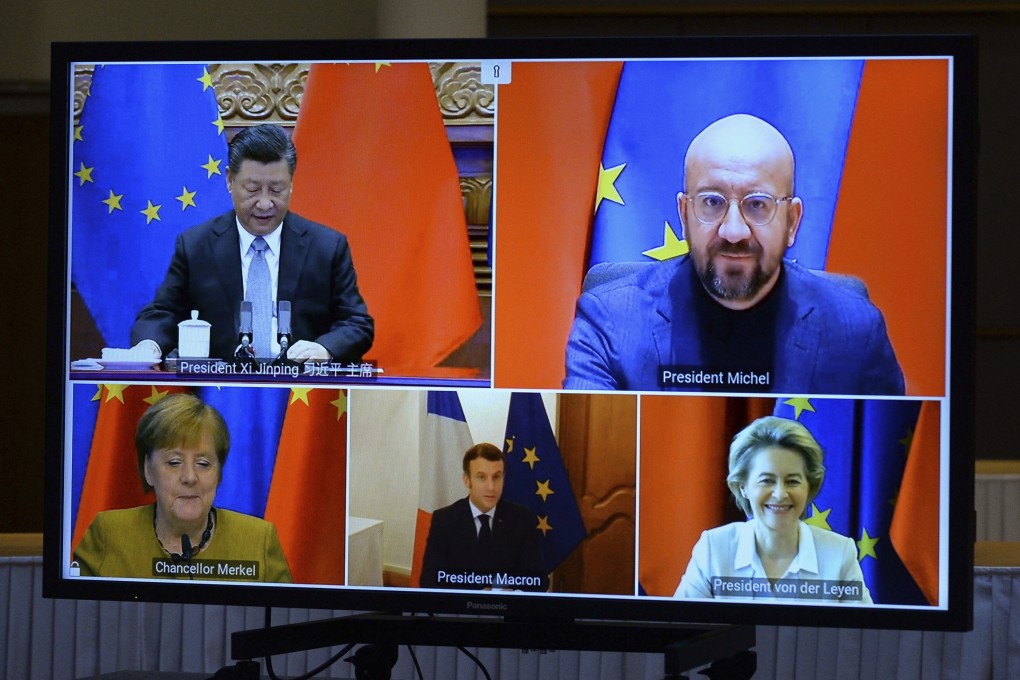EU-China relations: services sector seen as untapped potential for growth in relationship after goods trade overtakes US
- China overtook the United States as the European Union’s biggest trading partner last year with trade volume in goods reaching €586 billion (US$707 billion)
- The European Union and China also concluded negotiations for their long-awaited Comprehensive Agreement on Investment in December

Even as China overtook the United States as the European Union’s biggest trading partner last year, the services sector offers untapped potentials to grow the relationship which reached €586 billion (US$707 billion) in 2020, according to the president of the European Union Chamber of Commerce in China.
Both the EU’s exports to and imports from China grew last year, with exports valued at €202.5 billion and imports worth €383.5 billion, while the bloc’s trade deficit with China rose 9.9 per cent, expanding from €164.7 billion in 2019 to €181 billion last year.
We need to keep in mind that the US remains the EU’s number one trading partner when you include services
“We need to keep in mind that the US remains the EU’s number one trading partner when you include services,” Joerg Wuttke, president of the European Union Chamber of Commerce in China, told the official Xinhua News Agency in an interview on Thursday.
“The current headwinds include decoupling dynamics, politicised trade, import bans and export controls. Although the underlying economic forces for trade between the EU and China remain strong, we cannot take it for granted that it will continue to be that way indefinitely.”